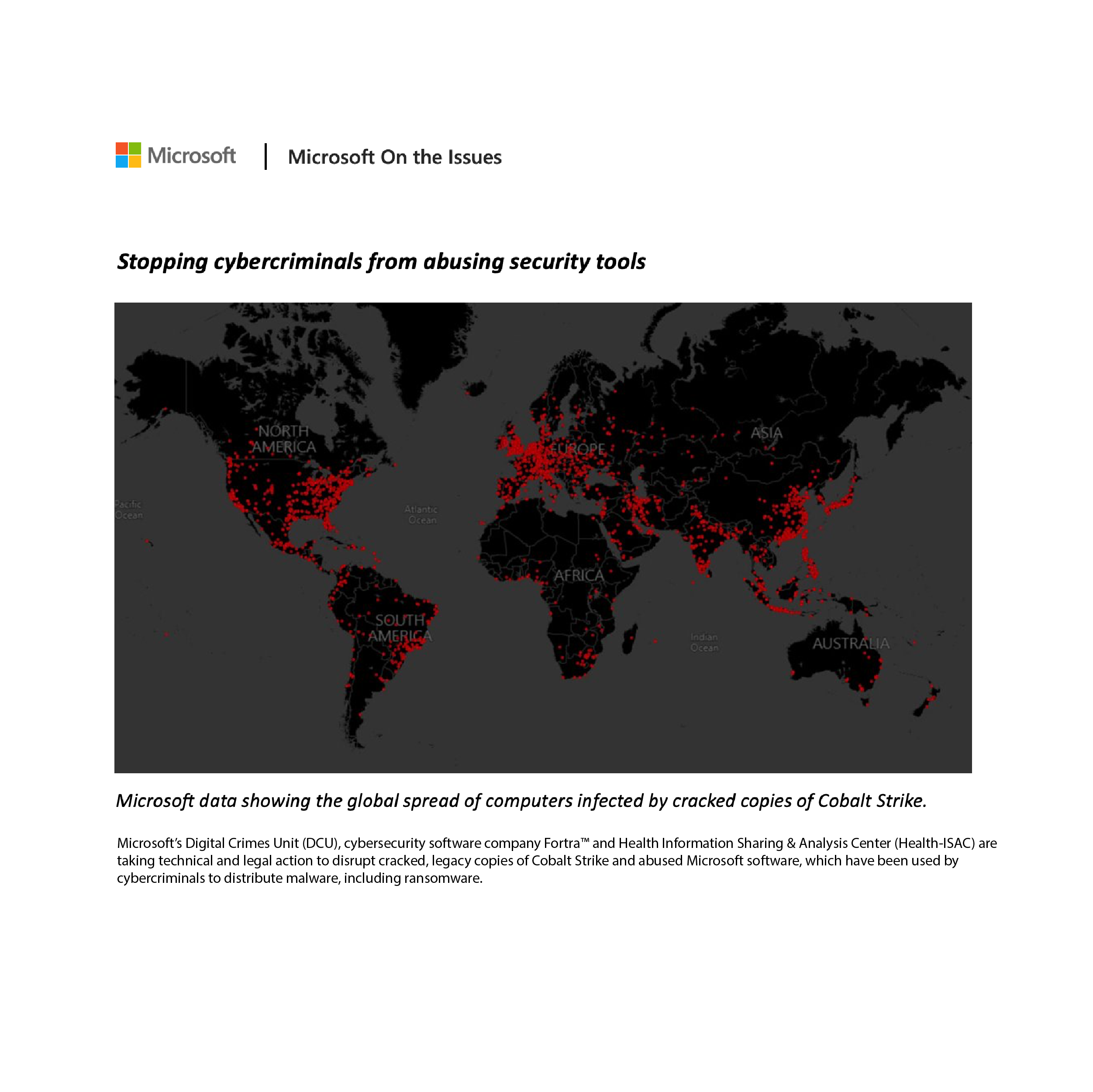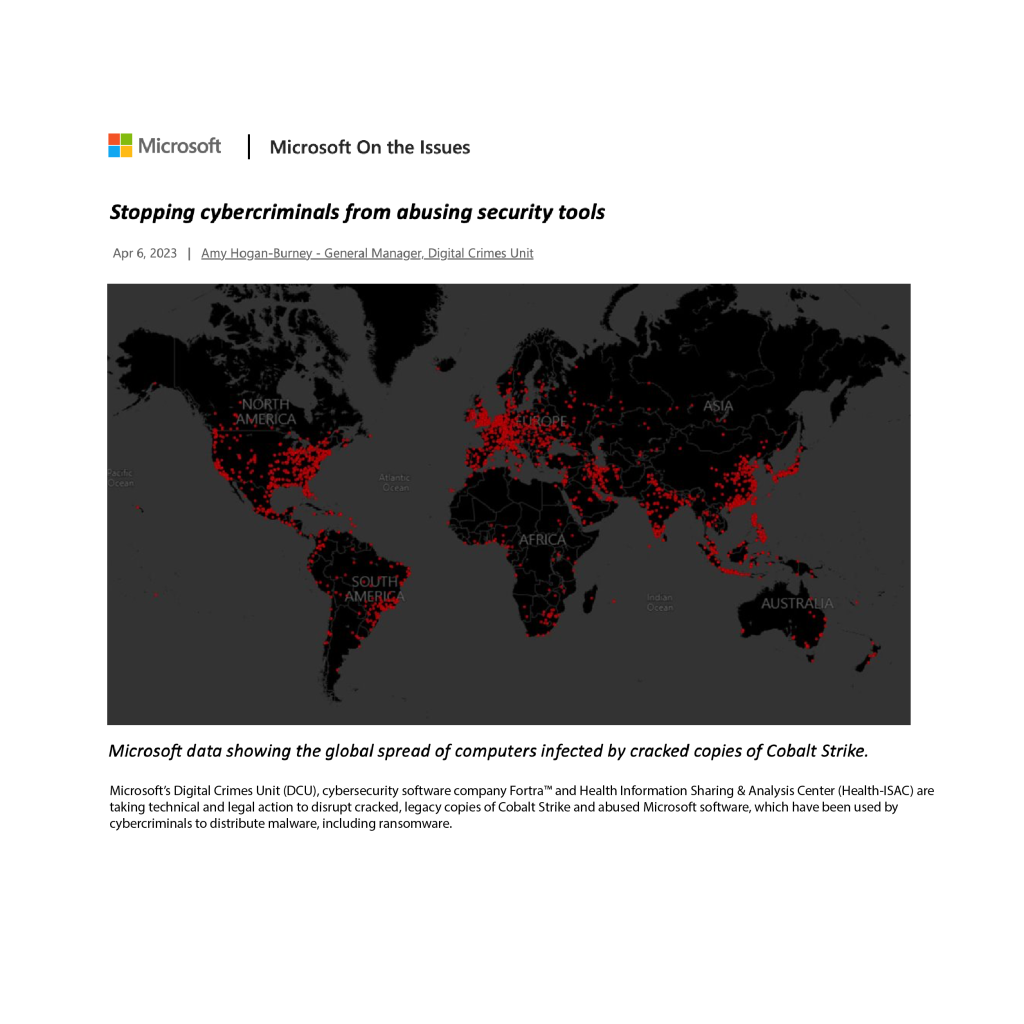Stopping cybercriminals from abusing security tools

Microsoft’s Digital Crimes Unit (DCU), cybersecurity software company Fortra™ and Health Information Sharing & Analysis Center (Health-ISAC) are taking technical and legal action to disrupt cracked, legacy copies of Cobalt Strike and abused Microsoft software, which have been used by cybercriminals to distribute malware, including ransomware.
 By Amy Hogan-Burney, General Manager, Digital Crimes Unit
By Amy Hogan-Burney, General Manager, Digital Crimes Unit
This is a change in the way DCU has worked in the past – the scope is greater, and the operation is more complex. Instead of disrupting the command and control of a malware family, this time, we are working with Fortra to remove illegal, legacy copies of Cobalt Strike so they can no longer be used by cybercriminals.
We will need to be persistent as we work to take down the cracked, legacy copies of Cobalt Strike hosted around the world. This is an important action by Fortra to protect the legitimate use of its security tools. Microsoft is similarly committed to the legitimate use of its products and services. We also believe that Fortra choosing to partner with us for this action is recognition of DCU’s work fighting cybercrime over the last decade. Together, we are committed to going after the cybercriminal’s illegal distribution methods.
Read the full blog here in Microsoft on the Issues https://blogs.microsoft.com/on-the-issues/2023/04/06/stopping-cybercriminals-from-abusing-security-tools/
- Related Resources & News
- Potential Terror Threat Targeted at Health Sector – AHA & Health-ISAC Joint Threat Bulletin
- New Cybersecurity Policies Could Protect Patient Health Data
- CyberWire Podcast: PHP flaw sparks global attack wave
- Health-ISAC Hacking Healthcare 3-14-2025
- HSCC Aiming to Identify Healthcare Workflow Chokepoints
- New Healthcare Security Benchmark Highlights Key Investment Priorities and Risks
- Are Efforts to Help Secure Rural Hospitals Doing Any Good?
- CISA cuts $10 million annually from ISAC funding for states amid wider cyber cuts
- 2024 Health-ISAC Discussion Based Exercise Series After-Action Report
- Cobalt Strike takedown effort cuts cracked versions by 80%
